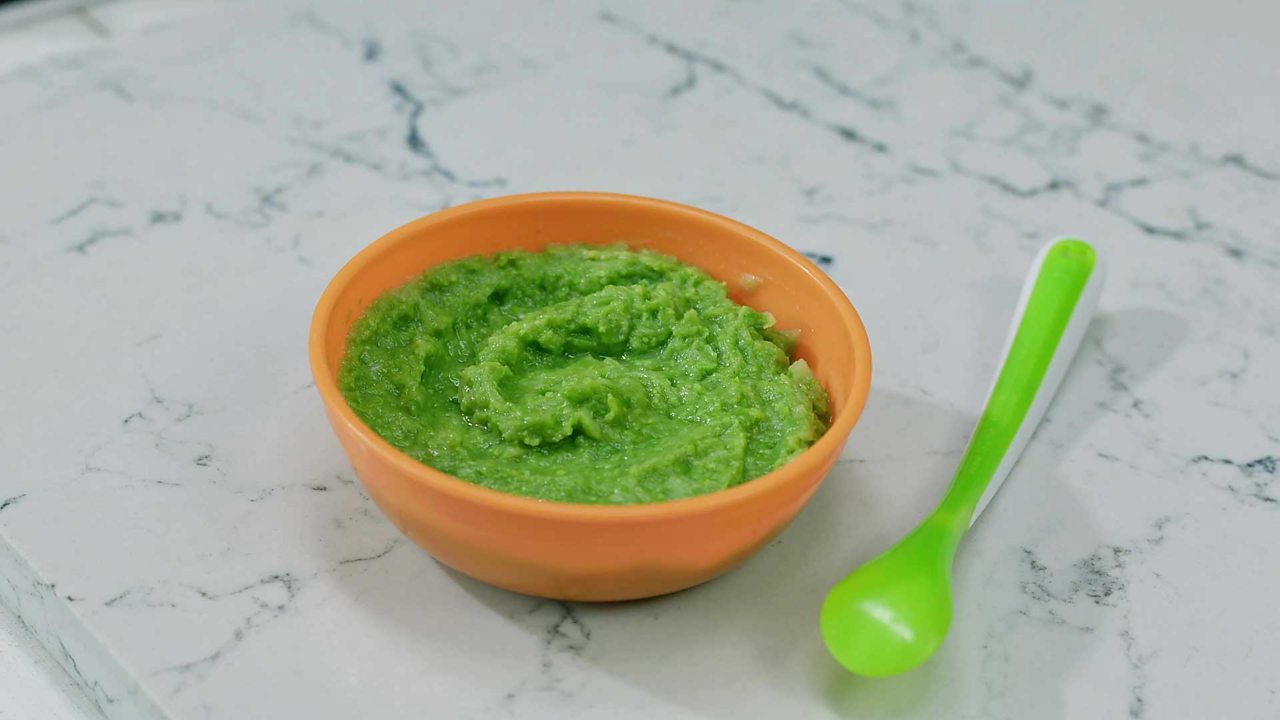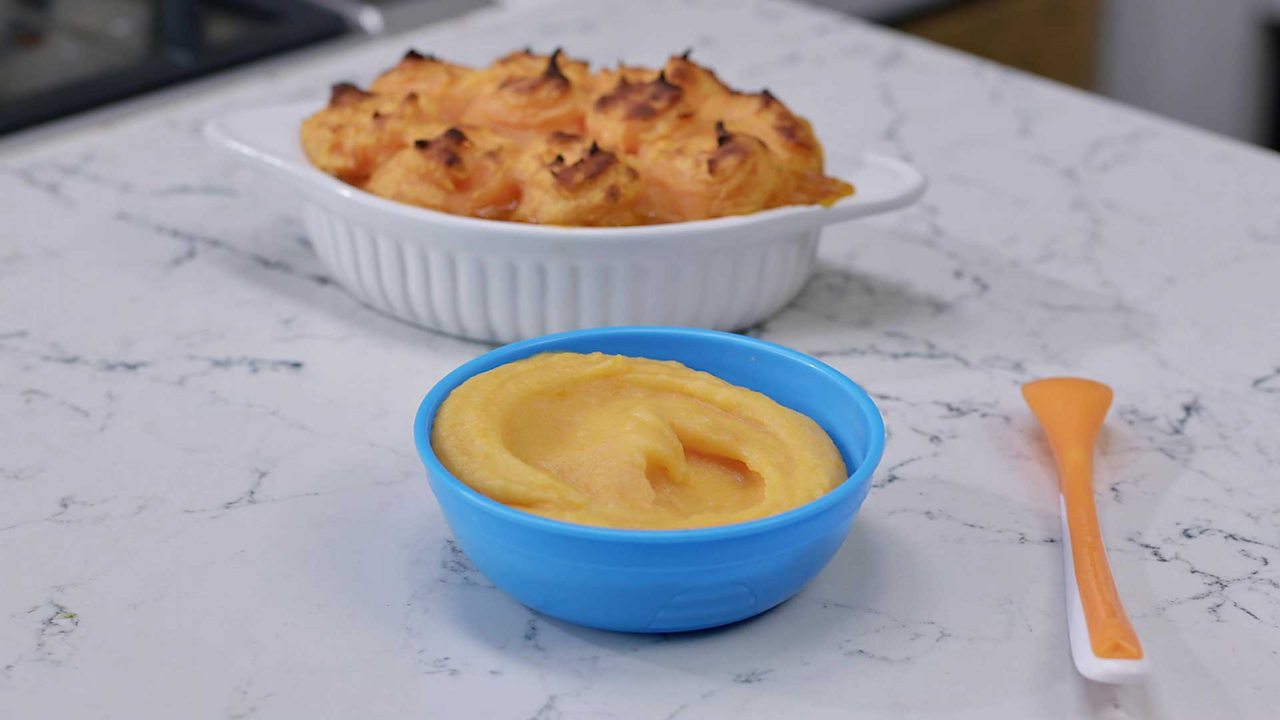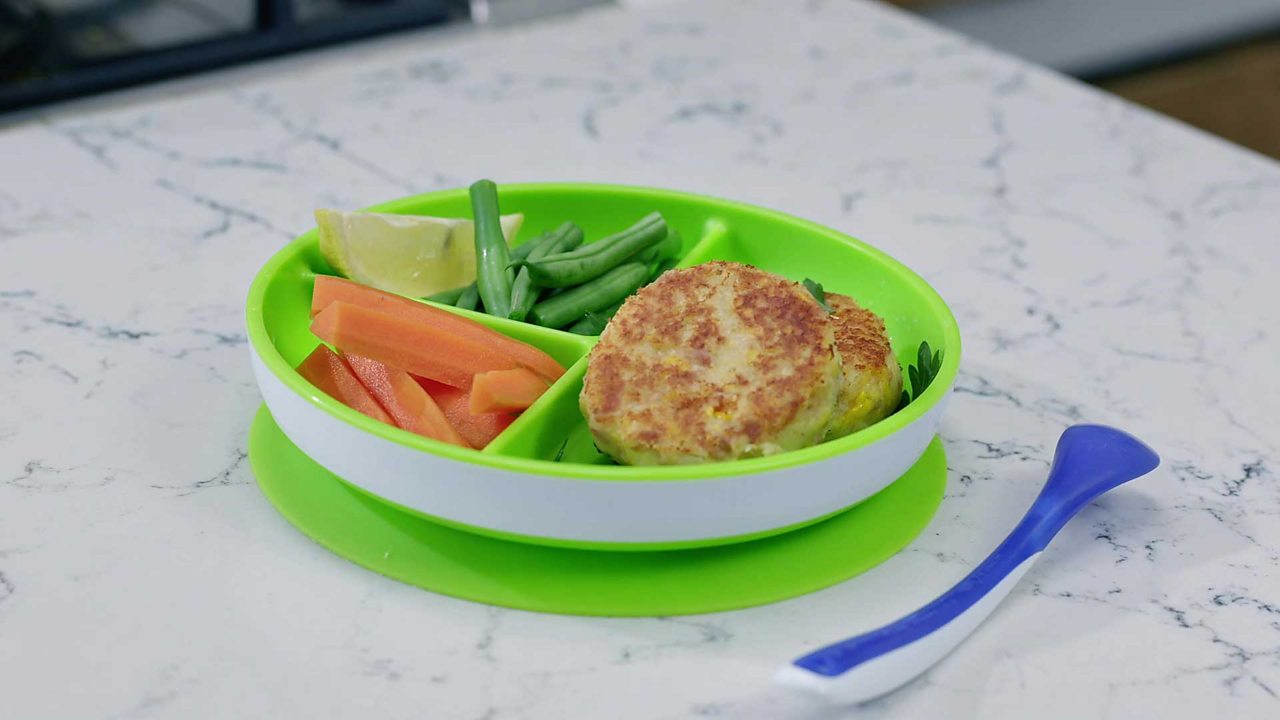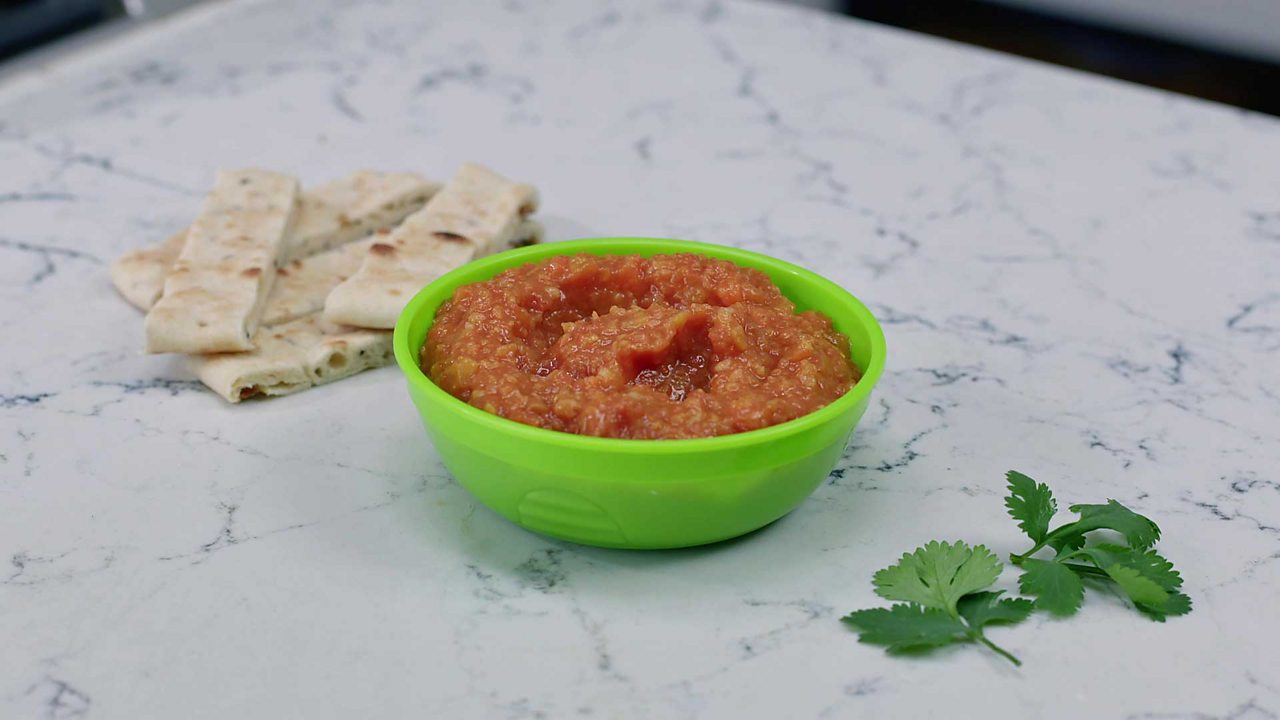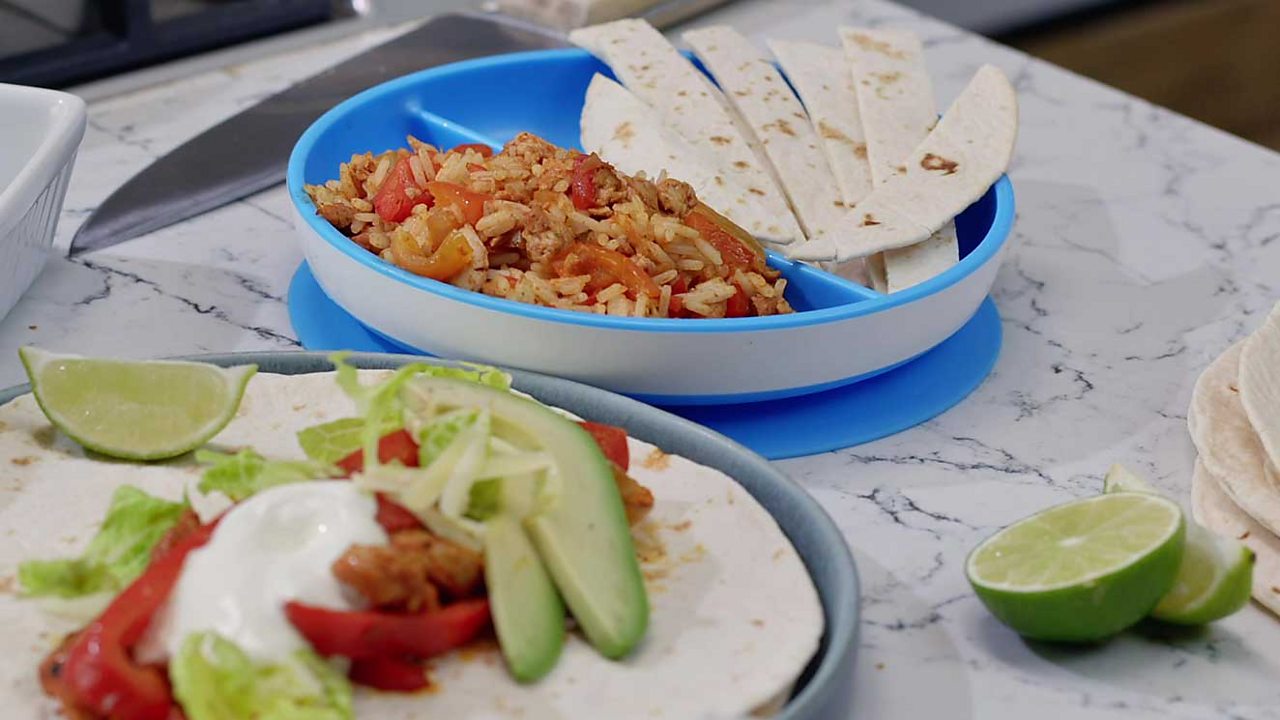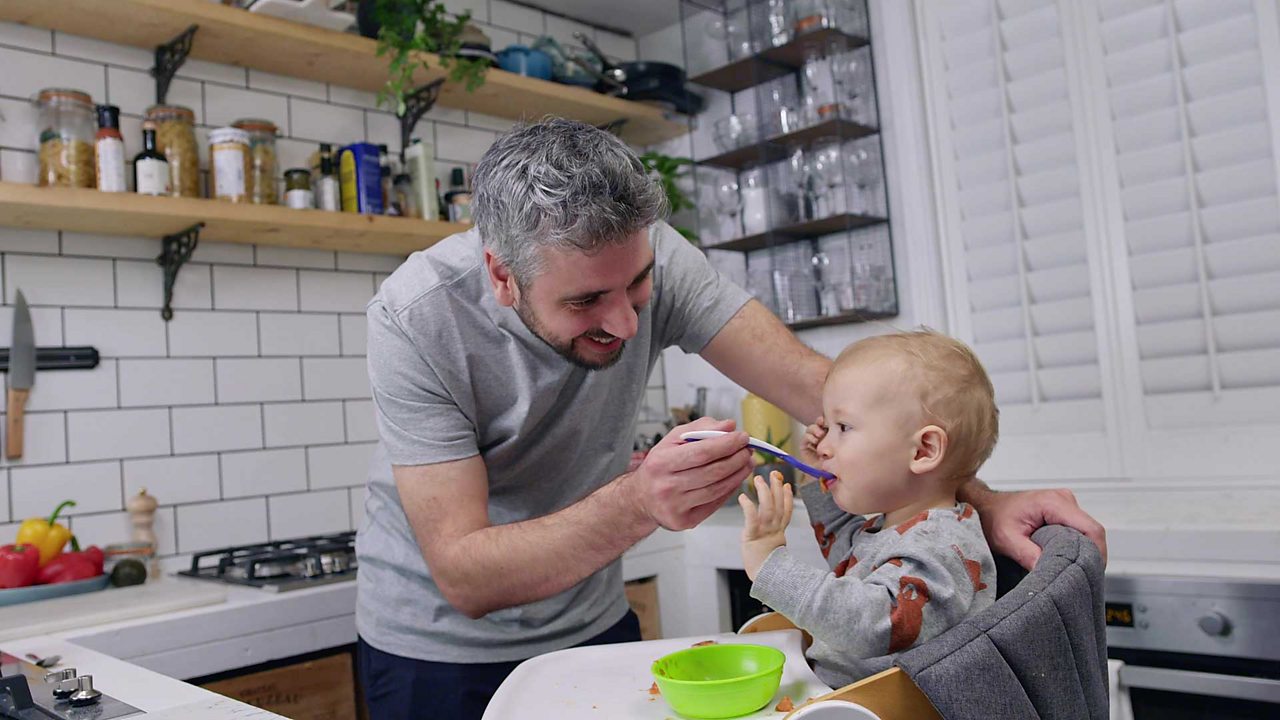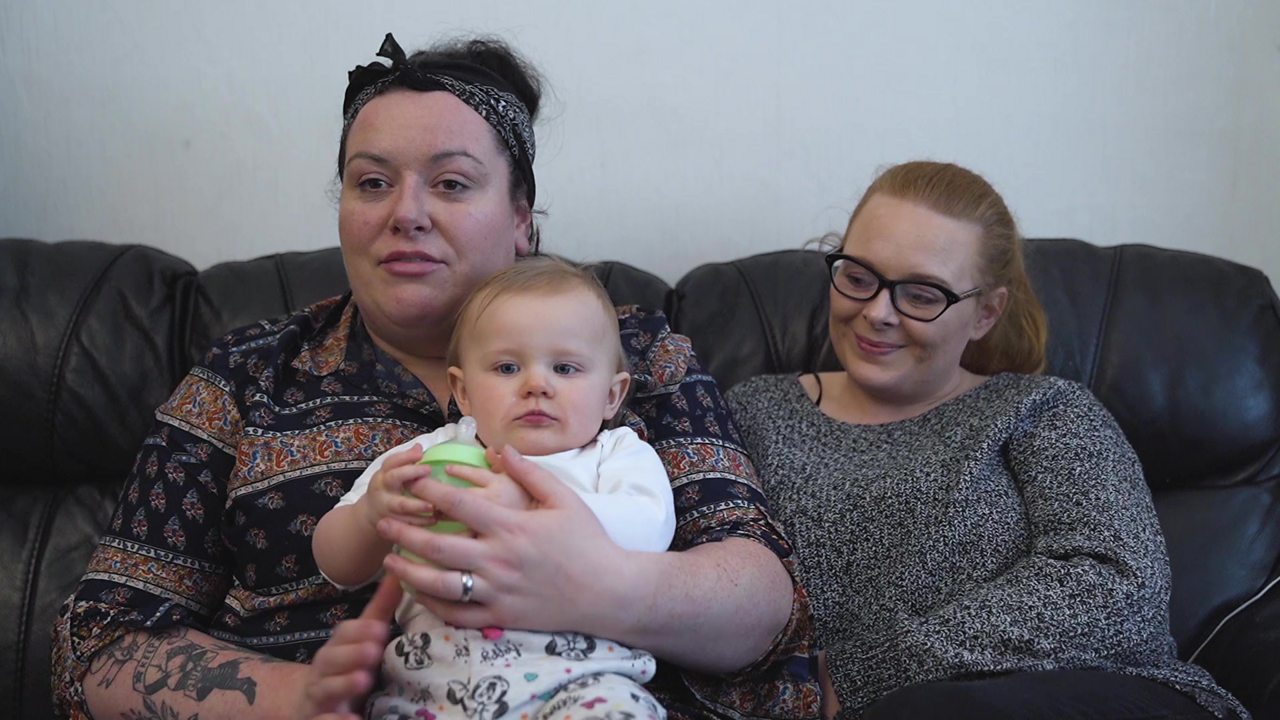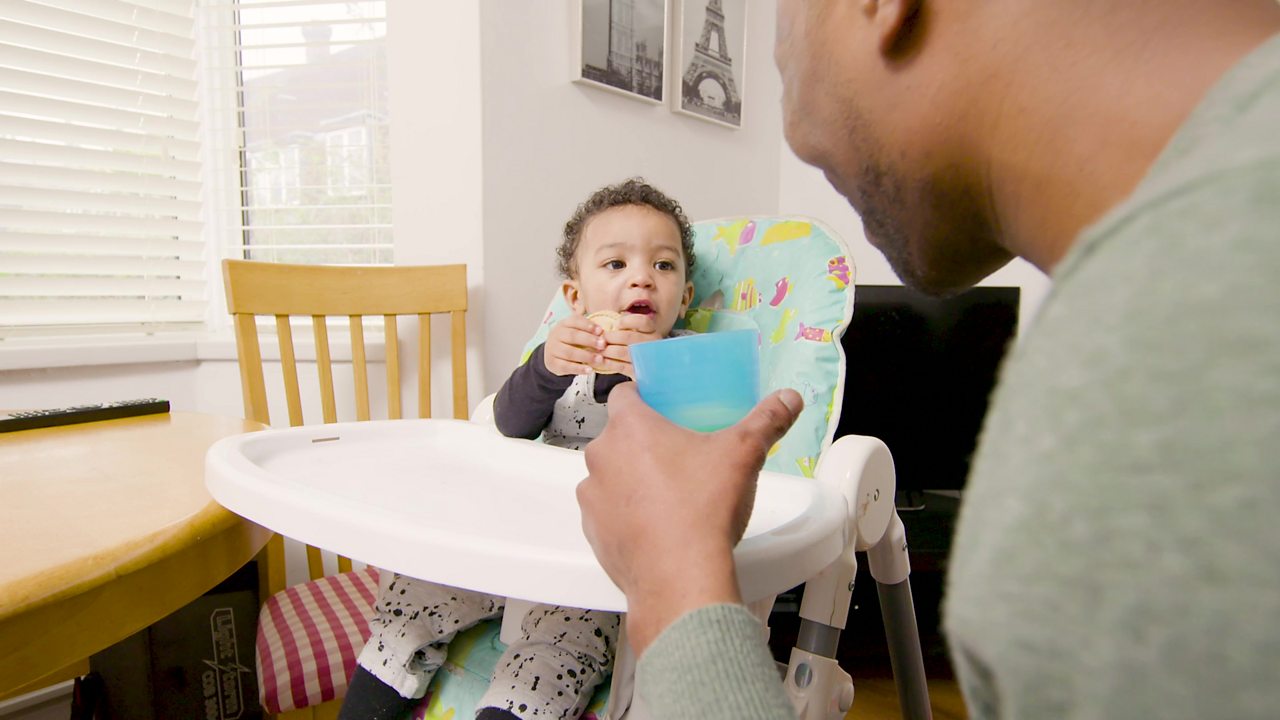Ultra-processed food: A guide for parents of under-fives
Jump to
Ultra-processed foods are a huge part of life in the UK in 2024. It can be scary to think about their impact on our health – particularly when news and social media channels are swimming in new information and speculation.
If you’re a parent to a baby, toddler or pre-schooler – often low on time and energy – quick meals and tasty snacks can be a godsend. Are these suddenly out of bounds?
We spoke to NHS registered children's dietitian Angharad Banner about processed foods - the positives and negatives – as well as ideas, easy swaps and recipes for parents of under-fives...
What are ultra-processed foods (UPFs)?
Angharad explains, “Put simply, a processed food is any food that has been changed in some way during its preparation. Foods that are unprocessed - ‘natural’ foods’ - are the edible parts of plants and animals. These are the foods that should form the main part of our diet.”
The NOVA scale helps us to work out how much a food has been processed, using four groups.
‘Ultra-processed foods’ (UPFs) are the last group on this scale and generally include foods that have undergone several processing steps and include artificial additives (like colourings, flavour enhancers and sweeteners), sugar, salt, or oil. It also includes drinks like fizzy cola.
You can see the NOVA scale below...
| Group | Definition | Examples |
|---|---|---|
| Group 1 | Unprocessed or natural foods. | Fruit, vegetables, meat, fish, nuts, seeds, pulses, eggs. |
| Minimally processed – natural foods altered by processes such as drying, chilling, freezing, boiling, or roasting. | Pasta, cous cous, dried fruit, pasteurised plain yogurt, milk. | |
| Group 2 | Processed cooking ingredients – used for preparation & seasoning | Sugar, salt, oil, butter, honey. |
| Group 3 | Processed foods – products made by adding Group 2 ingredients to Group 1 foods. | Smoked meats and fish, canned fish, bread, cheese, canned beans (such as kidney beans or butter beans). |
| Group 4 | Heavily processed foods or ‘ultra-processed foods’ (UPFs) – foods that have undergone several processing steps & include additives. | Ready meals, breakfast cereals, crisps, chocolate, biscuits, cakes, sausages, ice-cream, fruit yoghurts, chicken nuggets, fish fingers, instant noodles, fizzy drinks, baked beans. |
Why is everyone talking about ultra-processed foods?
You’ve probably seen people talk about UPFs on social media or television, often under a worrying headline.
Eating this type of food regularly has been associated with obesity, which itself is tied into a lot of other health issues.
New reports have been published on the negative side of UPFs - scientists are still investigating the long-term effect of additives, like emulsifiers and preservatives, but some research has shown that there is an impact on our health.
Additives, as well as sugar and salt, can also make us develop a preference for sweet and salty flavours. This is the case for all of us, but it is particularly important for children and young people that are developing their likes and dislikes.
These concerns - added to the fact that research has highlighted the UK as one of the biggest consumers of UPFs in Europe, per head - has meant that food processing has become a hot topic of conversation in this country.
Angharad says, “Ultimately, we should be eating more of the foods that are unprocessed or minimally processed and less of the processed and ultra-processed foods. But this isn’t always easy.”
Are they all bad?
Ideally, we should be eating fewer processed and ultra-processed foods, but Angharad says we should not forget that there can be benefits to them for families.
“Healthy diets do not have to be made up of only unprocessed or minimally-processed foods. Lots of breakfast cereals which are ultra-processed contain vitamins and minerals including vitamin D, vitamin B and iron, which are vital for our health.”
“White bread has added calcium and brown bread is a great way to get fibre into your diet.”
“Tinned foods, such as vegetables and beans (including baked beans), are used to make quick, nutritious meals - tinned tomatoes, for example, which can be used to make Bolognese or chilli con carne.”
Ultimately, a lot of processed and ultra-processed foods are cheaper too.
Angharad also recognises that there are specific family situations that mean that it’s almost impossible to avoid UPFs. For example, if a mother is unable to breast feed, there often isn’t an alternative to formula milk – which is ultra-processed.
“Some children will have one or several food allergies, such as a cow’s milk protein allergy,” Angharad says.
“Many of the suitable alternative products would be considered processed foods but are a necessary part of the diet and provide useful sources of calcium, as well as offering similar tastes and textures that are helpful as part of the weaning journey.
“Families wanting to eat less meat and fish and follow more of a plant-based diet may also turn to alternative protein sources that would be considered UPF but play a vital role in the diet.
“There are also some children who are highly selective eaters and some who have Avoidant Restrictive Food Intake Disorder (ARFID), which is a recognised medical diagnosis. These children may be reliant on processed foods for all of their nutritional needs.”
This BBC Food article has more information on ultra-processed foods and their potential benefits.
What can I do as a parent?
If you’re looking to cut down your family’s processed and ultra-processed food intake, Angharad has some simple steps to help you get started…
Look for a short ingredients list on the products you buy, ideally less than five
Try not to feel guilty for using processed or UPFs – each family is different and has their own needs and challenges
Get in the kitchen together and cook from scratch as much as you can. Try quick meals, like omelettes and stir-fries, and don’t forget, something like a traditional roast dinner is a great example of an unprocessed meal!
If you have little time to make meals and snacks at home, perhaps try cooking in bulk for the week ahead, this can make a huge difference.
Baby food and weaning snacks are a staple for many parents, but, in pre-packaged form, they often contain additives and are considered UPFs. These can be helpful if short on time, but can also be replicated at home using whole foods – check out some of our Tiny Happy People weaning recipes below!
Making one or two UPF 'swaps' is another great place to start...
Angharad's UPF swaps
Why not choose one or two of these 'swaps' that work for your family and try them out for a week.
| UPF | 'Swap' |
|---|---|
| Jar of pasta sauce | Homemade pasta sauce using tinned tomatoes, onion, garlic and dried herbs. |
| Cereal bars | Fruit flapjacks. |
| Shop-bought pizza | Make your own pizza base and top with sauce, your favourite toppings and cheese. |
| Processed meat products (sausages, bacon, fried chicken) | Try and decrease the frequency you use them and opt for more eggs, mushrooms and tomatoes if you like a cooked breakfast. |
| Sweetened breakfast cereals | Swap these for more wholegrain cereals such as porridge, malted wheat cereal and wheat biscuits, or use half wholegrain and half sweetened! |
| Flavoured yoghurts | Use plain Greek style or natural yoghurt and add fresh or tinned fruit. |
| Ready meals | These are handy on occasion, but consider if you need to add vegetables as these are often missing. Batch cooking or using a slow cooker can help manage the demands of family meals. |
| Sweets, chocolate and crisps | Aim to reduce the frequency by having alternatives like fruit or bread sticks dipped in peanut butter. You can also reduce the portion size by choosing fun size bars and packets. |
| Tinned soups | Aim to reduce these by making your own! They can be super easy to prepare. |
Recipe ideas
Here are some Tiny Happy People family recipes that use no, or few, ultra-processed ingredients…
